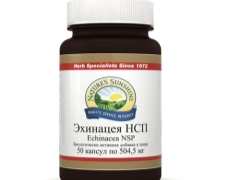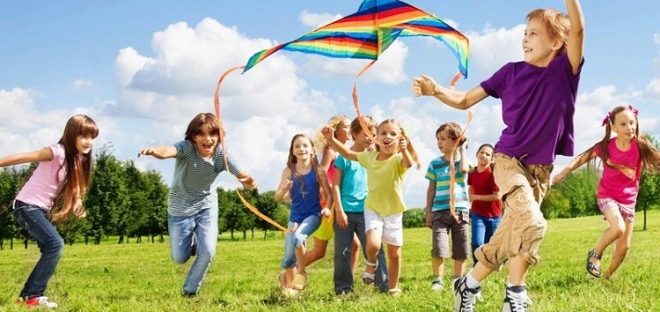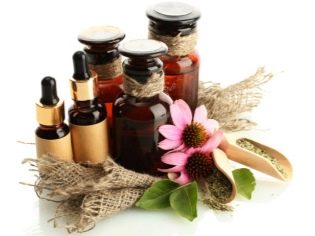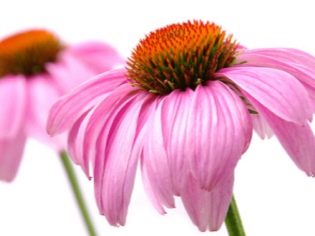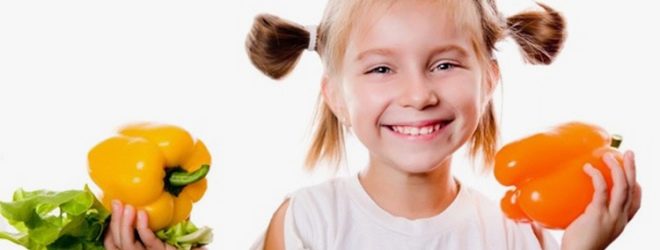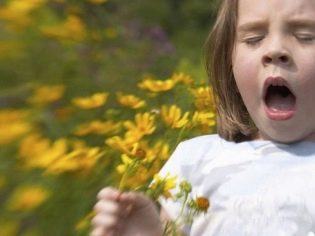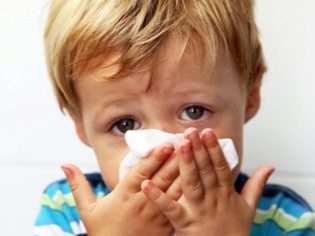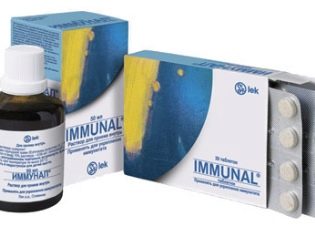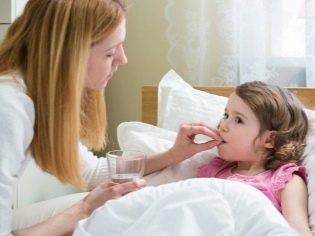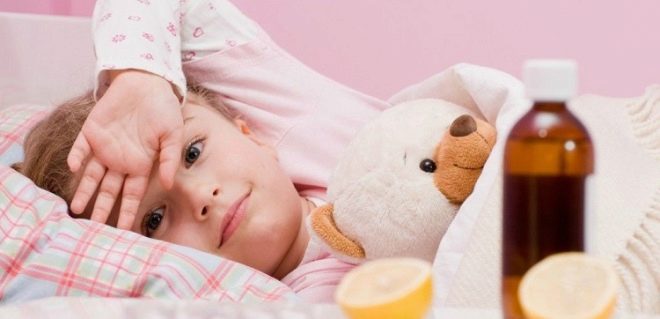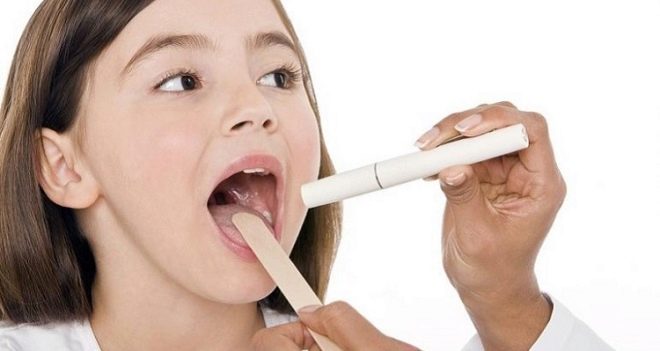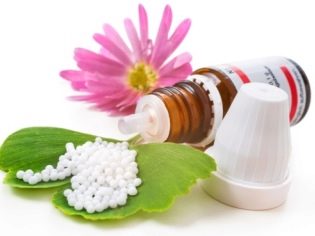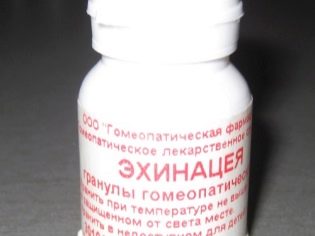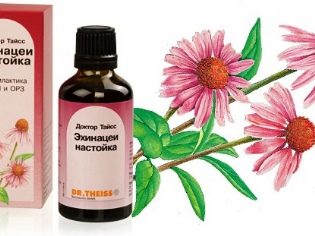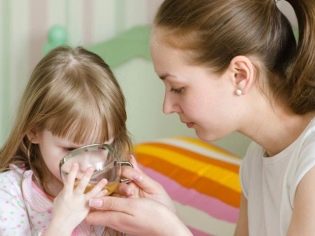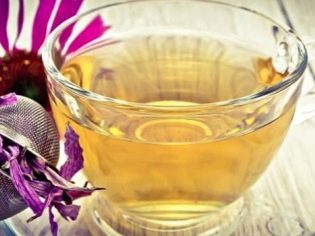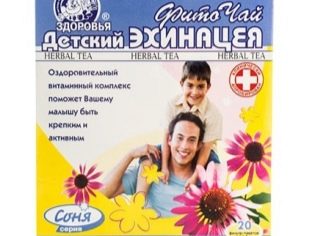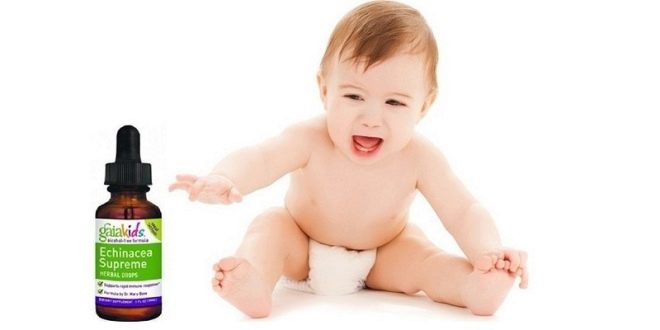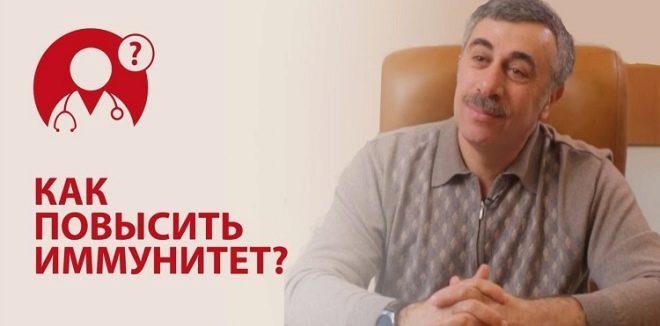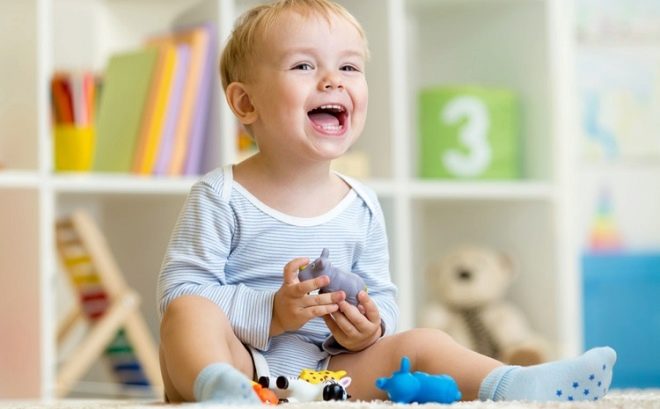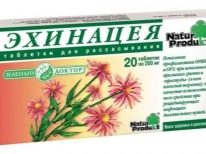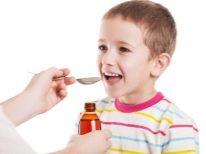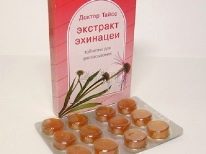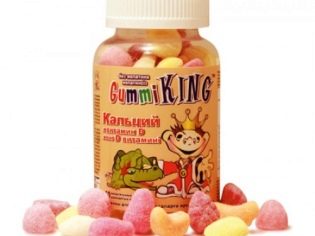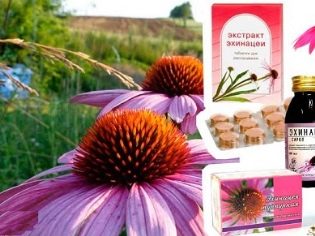Echinacea for children: effects on immunity and instructions for use
The immunity of children is imperfect, it has yet to “learn” and master ways of confronting pathogenic microbes, viruses. The issue of strengthening children's immunity is one of the most important. In this article we will tell you whether it is possible to maintain the child’s immunity with echinacea, and how to do it.
What it is?
Echinacea purpurea is a beautiful perennial plant, which is certainly familiar to everyone, even people far from botany. And all because it grows in almost every garden and in each cottage - this plant is highly valued for its pretty inflorescences, which for a long time do not lose their shape and freshness even after cutting.
Initially, the plant grew only in the United States, but then it spread widely throughout the world. His study was given special attention by Soviet scientist Serey Tomilin. He was the first to find out that cute flowers are not only a gardener's joy, but also an excellent remedy for depression, tonsillitis, typhoid fever and a number of inflammatory ailments of internal organs, as well as ulcers, burns and wounds.
In medicine, used two types of plants - narrow-leaved and purple Echinacea, using all parts of plants - flowers, leaves, stems, roots and rhizomes. The plant is part of the drugs that are designed to maintain immunity, disinfectants, as well as drugs for external cosmetic use.
Useful and healing properties for children
For a long time, the treatment of children with echinacea was a big question because of the insufficient knowledge of its action. Now the plant and its preparations are widely prescribed by pediatricians. Due to the amazing natural set of substances, the grass has received deserved recognition not only from folk, but also from official medicine.
The composition of vegetable raw materials in large quantities contains essential oils, vitamin A, E, C, organic acids, glycosides, antioxidants and minerals such as calcium and iron. If we compare the total effect of the plant, then it is quite comparable with one of the complex vitamin preparations.
Taking Echinacea drugs improves hemostatic processes - blood formation, has a positive effect on the growth of nails, hair, strengthening tooth enamel, prevents the development of tumors, boosts immunity, accelerates the process of removing toxins from the body due to the ability to bind free radicals. Echinacea improves liver function and helps all damaged tissues recover faster.
How does immunity affect?
In adults, there is a supply of antibodies to different pathogens, so adults more easily tolerate common diseases. In a child, immunity is formed naturally (after illness), as well as artificially (vaccination against dangerous diseases). Infants have innate or passive immunity, which they inherited from the mother in the period of prenatal development, and then with breast milk. But this immunity for a child is only enough for the first few months of life.
Strengthening immunity becomes an important parental task. Echinacea, according to Tomilin's research, promotes the production of interferon proteins that are involved in the immune response. However, according to the latest data, echinacea, if taken only during the period of seasonal diseases, can hardly protect against influenza and ARVI.
But parents should understand that a child who took Echinacea will be less sick, and the likelihood of complications after a viral illness he will be significantly lower than that of a baby, whose parents are not engaged in strengthening the immunity.
For a long time in North America, Echinacea replaced antibiotics, because it has the ability to block pathogens, preventing them from entering the cell membrane. Only with the advent of synthetic antibiotics has its use decreased somewhat. Under the action of echinacea, the number of leukocytes in the blood increases, phagocytic processes are stimulated.
Contraindications
Any medicinal plant besides useful properties has its contraindications. Echinacea is no exception. Drugs from it are prohibited for children suffering from bronchospasm, multiple sclerosis, as well as children with HIV infection.
You can not use the plant and drugs from it if the child suffers from a progressive disease, for example, tuberculosis or leukemia. Systemic diseases of the connective tissue are also contraindicated.
Means on the basis of this medicinal plant should not be given to children with allergies, in particular children with allergic reactions to substances in the chemical composition of the grass, as well as allergies to any plants of the family of the Compositae (velvet, arnica, chamomile, etc.). Also, they are not recommended for children with allergies to bloom.
From what age can I give?
Official instructions for echinacea drugs prohibit giving funds to children under 12 years of age. The ban is not associated with the negative impact of the plant on the child's body, but with the fact that pharmacists do not have enough clinical data, experiments on children simply have not been carried out. By law, since no such clinical results have been obtained, the manufacturer must indicate this in the section on contraindications.
In practice, the plant is used in childhood, and there are only limitations associated with the form of release of the drug. For example, Echinacea tincture is really not suitable for children, because it contains alcohol. But homeopathic pills "Immunal», Which also consist of Echinacea, can be given to children from 1 year to 5 years.
Sometimes Echinacea is recommended for babies, but in the dosage allowed by the pediatrician. Children aged 2-3 years, as well as 4 years old, you can give the child herbal tea with echinacea.
In any case, before using the drug, it is necessary to consult a doctor. This will avoid unpleasant consequences and side effects of the plant.
Indications for use
The indication for use is prevention of colds and viral seasonal diseases, as well as taking the drug during the period of the disease to relieve symptoms and prevent complications. For prophylaxis - does not mean that the child will not get sick. This means that the disease will proceed in a milder form.
During the treatment of herpetic, other viral diseases, as well as bacterial and fungal infections, Echinacea is an auxiliary tool that contributes to a more rapid cure.
Echinacea is also recommended after the disease during the recovery period, especially if it was preceded by a prolonged treatment with antibacterial drugs and hormonal drugs.
The recent use of echinacea among children gives physicians compelling evidence that The use of a plant in the complex therapy gives a positive effect when:
- rhinitis;
- pharyngitis;
- sinusitis;
- otitis;
- angina and chronic tonsillitis;
- cystitis;
- pyelonephritis;
- chronic diseases of the upper respiratory tract.
Often the doctor recommends taking echinacea in the postoperative period, if there are no other contraindications.The medicinal plant helps to rehabilitate faster after surgery and partially reduces pain and reduces inflammation.
Forms of release and instructions for use
Echinacea can be sold in ordinary sachets, of which brewed herbal tea. Also in pharmacies sold herbal tea, which is an extract of echinacea.
Granules
The most popular form for children is Echinacea in granules for sucking. It is also called echinacea tablets. It is a homeopathic remedy. The form is recommended for children from the age of four. Up to 12 years of age, you can give a child 1 granule three times a day, and for children over 12 years old - 2 granules with the same frequency.
Water infusion
It is more convenient for young children of Echinacea to be given in liquid form. To do this, you can make a homemade water infusion without alcohol, as well as purchase echinacea in syrup. The dosage is determined by the doctor, but on average it is one teaspoon per day up to a year and 2 teaspoons per day after 5 years.
Tincture
Pharmaceutical tincture of echinacea contains alcohol, and therefore not recommended by the manufacturer for children under 18 years old, but in practice it is given to adolescents over 12 years of age, after diluting one third of the tincture with two thirds of water. The dosage is measured in this case drops - a child can be given from 5 to 10 drops of diluted tincture three times a day. The general course of treatment should not exceed two months.
It is advisable to prepare the solution before use, it is better not to store the diluted tincture.
Decoction
Broth is prepared at home from vegetable raw materials. It is suitable for children who are contraindicated in the syrup because of its high sugar content. Decoction can be given to children after a year. Dosage up to 5 years - 25 milliliters of broth three times a day, after 5 years - 50 milliliters three times a day. Teens dose can be increased to 100 milliliters. It is easy to prepare the broth - you need 10 grams of dry raw materials and half a liter of water. Prepare a decoction on low heat, after a five-minute boil, defend for 3 hours and filter.
Tea
Prepare Echinacea tea using sachets, which are sold in any pharmacy. Independent preparation of dry raw materials can lead to errors in dosage, so it is more convenient to use the packaged release form. Tea is allowed for children from a year.
In total there are about 250 drugs, which include this amazing plant. This and vitamins with echinacea in the form of chewing lozenges, capsules, gelatin bears and fish. Reception of such vitamins is recommended for children from a year. When choosing a drug with a medicinal plant for your child, try to avoid release forms that include dyes, stabilizers and preservatives, especially if the drug is intended for a small child.
Possible side effects
Among the side effects of the official instructions for use indicates the likelihood of pressure reduction while taking the drug, which includes echinacea. However, hypotension develops quite rarely. The plant does not often become the cause of allergy in a child, but parents are required to know about this probability.
An allergic reaction can be different, most often it is manifested by the appearance of a skin rash, itching, local erythema, less often respiratory manifestations: runny nose, cough, watery eyes. In severe cases, bronchospasm and angioedema may develop.
Taking any medication based on echinacea is not recommended for more than 2 months. After this period, with continuous admission increases the likelihood of leukopenia. If you exceed the recommended dosage, unpleasant gastrointestinal symptoms may occur - nausea, vomiting, diarrhea.
If symptoms of a side effect of the drug occur, stop taking it and consult a doctor.
Opinion of Dr. Komarovsky
The famous pediatrician Yevgeny Komarovsky claims that Echinacea cannot harm a child, like other drugs from the field of homeopathy. However, one should not expect any benefit from it for children's health. Echinacea really strengthens the immune system, but is not a panacea. Homeopathic preparations contain extremely low dosages of the active substance, their number is measured not by grams and not milligrams, but by molecules. Can a few molecules of a substance raise the immunity? Most likely, can not. The effect of echinacea in pharmacy homeopathic preparations Komarovsky assesses as a placebo.
The effectiveness of homeopathic medicines has not been proven, and today they are not considered drugs. Any immunostimulants, to which manufacturers identify echinacea and its derivatives, should, according to Komarovsky, act in proportion to side effects. Drugs that have a proven immunostimulating effect usually cause a large number of "side effects." Echinacea, in contrast, is completely harmless if there is no allergy to it. Therefore, its effectiveness for immunity is almost zero.
The doctor reminds that homeopathy is recognized by pseudoscience, and homeopathic medicines are a stable source of income for corporations producing them. To buy them for a child or not to buy them, Komarovsky suggests that parents decide for themselves. There will be no harm from them, it is possible to serve, but it is better not to count on a powerful effect.
The doctor advises improving the child's immunity by hardening, staying in the open air, swimming in open water in the summer, a balanced diet and sensible intake of any medications, including medicinal plants.
Reviews
On the Web, you can find a fairly large number of reviews of mothers on children's Echinacea intake. Parents of babies from one year to three years old note that they did not notice any pronounced effect. But now parents of children over 4-5 years old claim that there is an effect - the child has become ill less often. This can be explained not so much by the impact of homeopathy as by age - after 4 years the immunity becomes stronger, because in the first three years of life the child had already had major infections, he had been given a lot of vaccinations. However, if parents want to believe in the wonderful properties of Echinacea, no one forbids them.
List of other drugs with echinacea:
- "Immunorm";
- "Estiphane";
- "Echinacea tincture";
- "Echinacea Hexal";
- Echinacea-VILAR;
- Echinacea-GalenoPharm;
- "Ekhinatsin liquidum".
Drugs do not have a patent, they do not belong to drugs, and therefore new products with echinacea in the composition appear on the shelves of pharmacies almost every year. Despite the fact that the plant is quite widespread, the cost of drugs from Echinacea can not be called low. Thus, the tablet form "Echinacea" costs from 200 rubles, the cost "Immunal»Starts from 300 rubles per tablet form and reaches 800 rubles per capsule. "Immunorm" costs from 160 rubles.
Parents who are forced to admit that taking Echinacea did not cause the desired result are looking for an answer to the question about the causes of this phenomenon - it helped everyone, but it did not help them ... They look through different drugs, experimenting with dosages. This is also not prohibited, but parents should remember that experiments should be reasonable.
Analogs
It is not necessary to look for drugs called Echinacea on the shelves of pharmacists, because this plant is included in many drugs.
- For young children, you can choose homeopathic «ImmunalOr Immunal-S. In the first case, the drops and tablets are made only from the extract of the plant, in the second case - with the addition of vitamin C.
- "Gammi King" - This is a vitamin complex with echinacea and additional zinc content. These are gummies without dyes and preservatives. Suitable for children from two years.
- "Sanasol" - This is a syrup that, in addition to Echinacea extract, contains vitamin C and rosehip extract. You can also buy chewable lozenges with the same name.
- "Solgar" - It is a manufacturer of vitamins, which included Echinacea. Drugs are the official status of dietary supplements. There are various types of these vitamins - lozenges, syrup, capsules.
- "Doctor Theiss" - drops for oral administration. This tool is quite popular and widely publicized. But very few people know about the existence of the solution for intramuscular injection, however, it exists - Echinacea Compositum CH. This is a homeopathic solution for injections.
All the same Dr. Komarovsky, whose opinion is listened to by millions of mothers and grandmothers, recommends that this money be spent with greater benefit for children's health - buy fruit and berries for the kid, pay a subscription for a teenager to the pool. From swimming and fresh fruit, the effect in strengthening the immune system will be faster and more noticeable.
In the next video, Dr. Komarovsky talks about how to strengthen the immune system in children.
